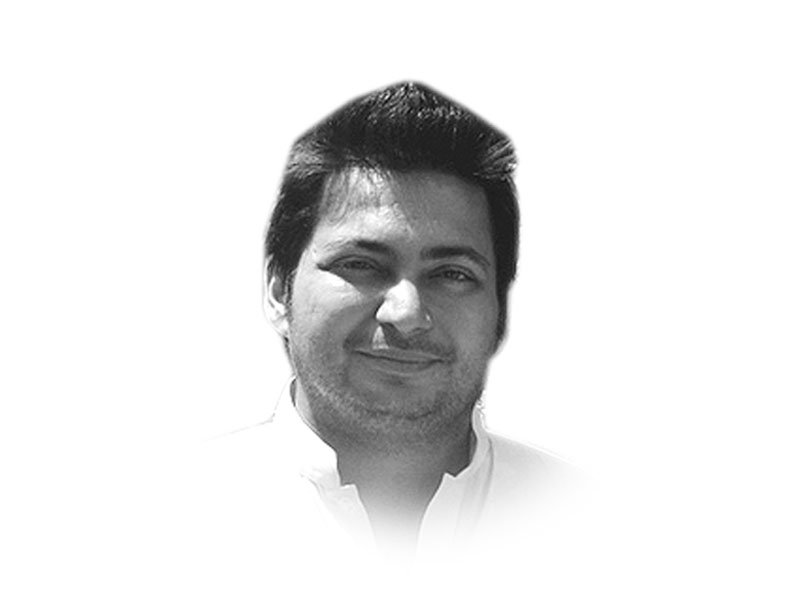
However, during the process of forming party lines online and the practice of select groups of trolls lashing out at detractors, a pleasant new phenomenon has taken place. I have been watching this rather closely and have observed that people have moved from talking about parties and discussing them to now holding them completely and ruthlessly accountable for their actions online.
I suppose this transition took place because educated voters realised that this is, perhaps, the best way to speak out in a system, which is hell-bent on silencing their voice. Quite frankly, today, a person in Pakistan has little or no recourse to justice or speaking out if the issue is not bolstered by social media. This is why, one sees more people holding political parties accountable online for every decision they take. This is also bolstered by the fact that finally, at least in the recent elections, most of the startling news content was produced by the citizens themselves, be it in the form of videos showing rigging taking place or status updates on when they voted and in what conditions.
While it is true that many have in the past scoffed at social media on the basis that the number of people online was too insignificant to make a difference, as per information provided by the Pakistan Telecommunication Authority, the number of people using social media in the country is just under 30 million. Analytics companies, which make studies out of cookies that can trace a particular browser session, put this number at around 15 to 20 million. Even this is a huge number for a country like ours. To break this number down further, Facebook has around 8.6 million Pakistanis on it, while Twitter has just over a million users at present. Absolutely accurate figures cannot be given for social media simply because even as I write, more and more people are joining it, so it is a forever increasing figure. Compare this online reach with some of our mainstream print publications’ circulations and even after factoring in fake accounts, one can see an alarming gap of reach, leaning in favour of online media.
So, now that we are able to put out newsworthy content from the palm of our hand and hold our political leaders accountable, the ball lies in the political parties’ court. They can either embrace this tool more fully and form online complaint centres for people to interact with, as well as suggest public works projects to, or they can, as some currently do, ignore it all to their own doom. I say doom because this election was just a slight glimpse into what a social media-enabled generation can do. In five years, people will be using more efficient and perhaps, even securer means of communication. So, in the next election, they might go from just reporting and holding political leaders accountable to changing a candidate’s mandate by the power of their voice should he or she not fulfil their standards.
Published in The Express Tribune, June 4th, 2013.
Like Opinion & Editorial on Facebook, follow @ETOpEd on Twitter to receive all updates on all our daily pieces.
COMMENTS (3)
Comments are moderated and generally will be posted if they are on-topic and not abusive.
For more information, please see our Comments FAQ


1732266251-0/Josh-Brolin-(1)1732266251-0-165x106.webp)
1732266343-0/BeFunky-collage-(82)1732266343-0-165x106.webp)








@Mirza: As per pta there are just under 30 million ppl om social media. Thats more then 11% of your population so the fallacy that its just the upper class is pretty obvious.
The popularity aint artificial.. If it was there would not have been a one pound fish
Musharraf was never allowed to ckntest elections so what are we judging his fiure by??
Imran khan went from one seat to over 26 and to become the third largest party on this nation. If you believed he could be pm because of what you read on his social media campaign the campaign did its job?
PTI was the only party that used this medium to its full effect but majority of its seats came from KPK, I wonder how many of its voters from these areas use Facebook or Twitter?
The writer says "our politicians tend to be more than a bit clumsy when it comes to technology". You have to go easy on these leaders who are all past retirement age. It is ironic to say that but among top leaders Zardari is the youngest of them all! In addition the writer did not provide % of population having easy access to Internet let alone social media. Most of the people on the social media are from upper and urban elites and they propel the campaign of artificial popularity. Mush came back because he is very popular on social media. PTI supporters thought they have won the elections before a single vote was cast. However, it is the rural heartland of Pakistan that determines the fate of political leaders not the urban elites. If the elections were limited to overseas Pakistanis who have access to all facilities and the urban elites Mush would not have to go to jail and IK would be the PM today.